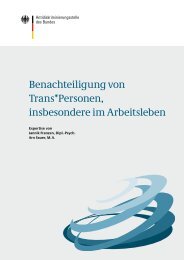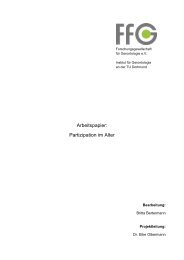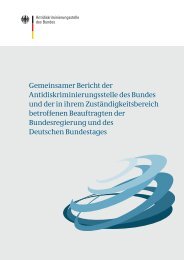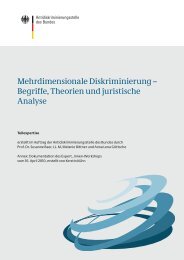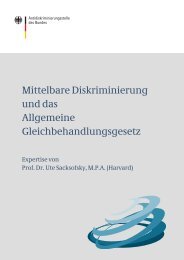Download (PDF,6 MB) - Antidiskriminierungsstelle
Download (PDF,6 MB) - Antidiskriminierungsstelle
Download (PDF,6 MB) - Antidiskriminierungsstelle
Sie wollen auch ein ePaper? Erhöhen Sie die Reichweite Ihrer Titel.
YUMPU macht aus Druck-PDFs automatisch weboptimierte ePaper, die Google liebt.
page 151 chapter IV<br />
André Habisch addressed a fundamental problem in<br />
this context: “We’ve become accustomed to passing<br />
regulatory tasks to the state as a neutral arbitrator. But<br />
that no longer works in times of globalisation. After<br />
all, every nation has an inherent interest in not excessively<br />
burdening ‘its’ companies. For instance, the<br />
United Kingdom doesn't want strict regulation of<br />
financial markets, since too many jobs are dependent<br />
on the financial centre of London. And, because of its<br />
automotive industry, Germany rejects stringent environmental<br />
standards, particularly for high-end vehicles.<br />
Accordingly, it's only ever possible to enforce<br />
minimum standards internationally.” Consequently,<br />
there was a need for players in the financial field to<br />
come up with accompanying initiatives targeting selfregulation:<br />
“For example, it would be a good start if<br />
the lenders were also to pay attention to ethical criteria.”<br />
André Habisch mentioned the “Equator Principles”<br />
as an example. They are a code of extended environmental<br />
and social standards that are applied when<br />
financing projects, particularly in developing and<br />
emerging nations. The initiative came from four<br />
banks, and 80 percent of international project financ-



